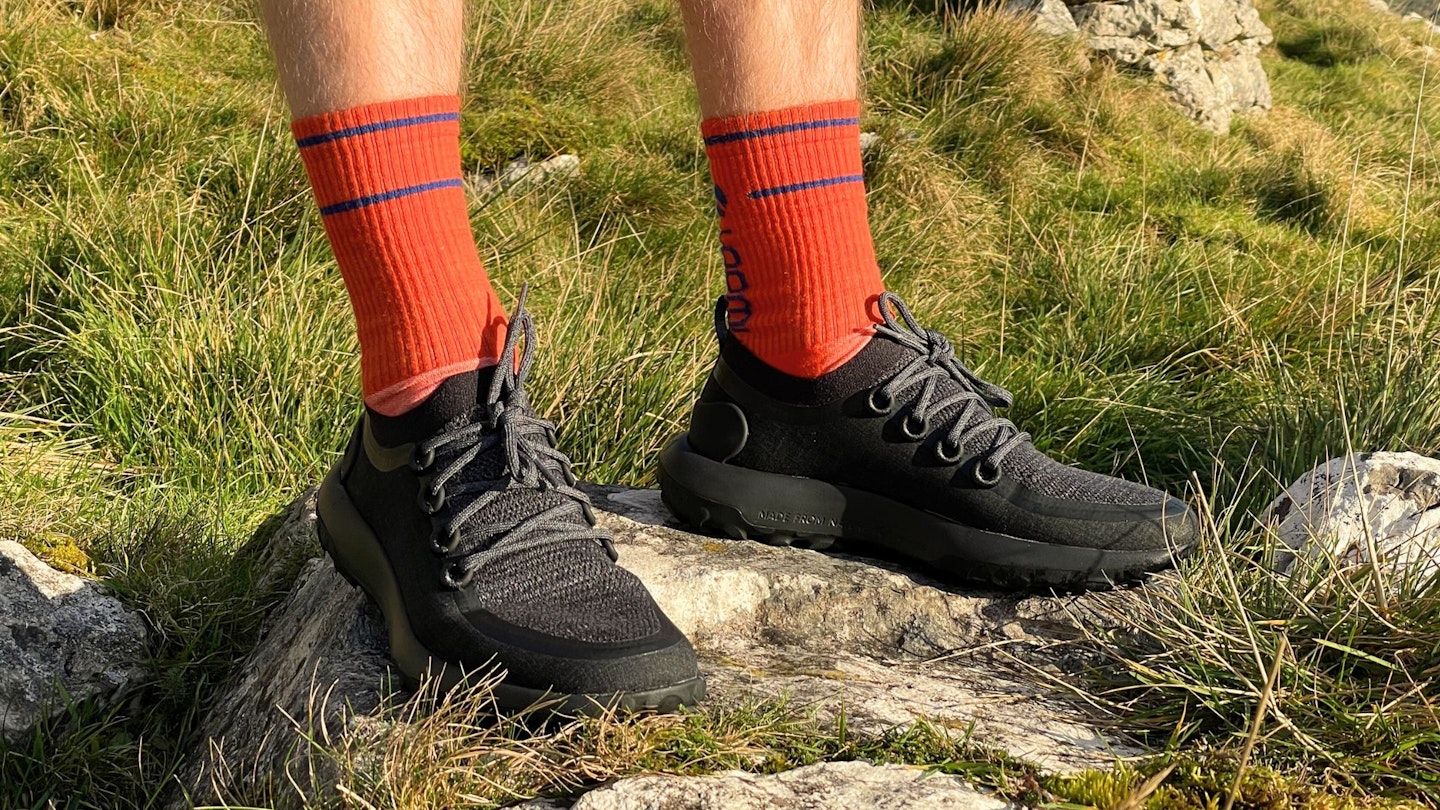One of the consequences of the development of synthetic materials is the modern trail running shoe. With its lightweight synthetic upper and midsole, it is a testament to our engineering ingenuity. However, being quick to wear out but slow to break down, it's also a testament to our appalling, short-sighted consumption.
One of the great ironies of the outdoor industry is that its industriousness is ruining the outdoors. It’s an inconvenient truth that has taken too long to evolve into a widely recognised issue that customers and businesses are willing to meaningfully act on.
But what to do? Using recycled synthetic fabrics reduces emissions and use of raw materials, but doesn’t totally solve the issue.
Allbirds was founded (in 2016) in response to the challenge of sustainable footwear. Its primary weapon: intelligent, naturally-derived materials such as wool – that amazing, regenerative, and woefully undervalued material. After initially focusing on sneakers and lifestyle-type shoes, Allbirds has developed its first hiking and trail running shoe.
Very keen to see more sustainable outdoor footwear on the market, we’ve been testing the Allbirds Trail Runner SWT to see whether it’s a viable performance alternative to your synthetic trail running shoes.
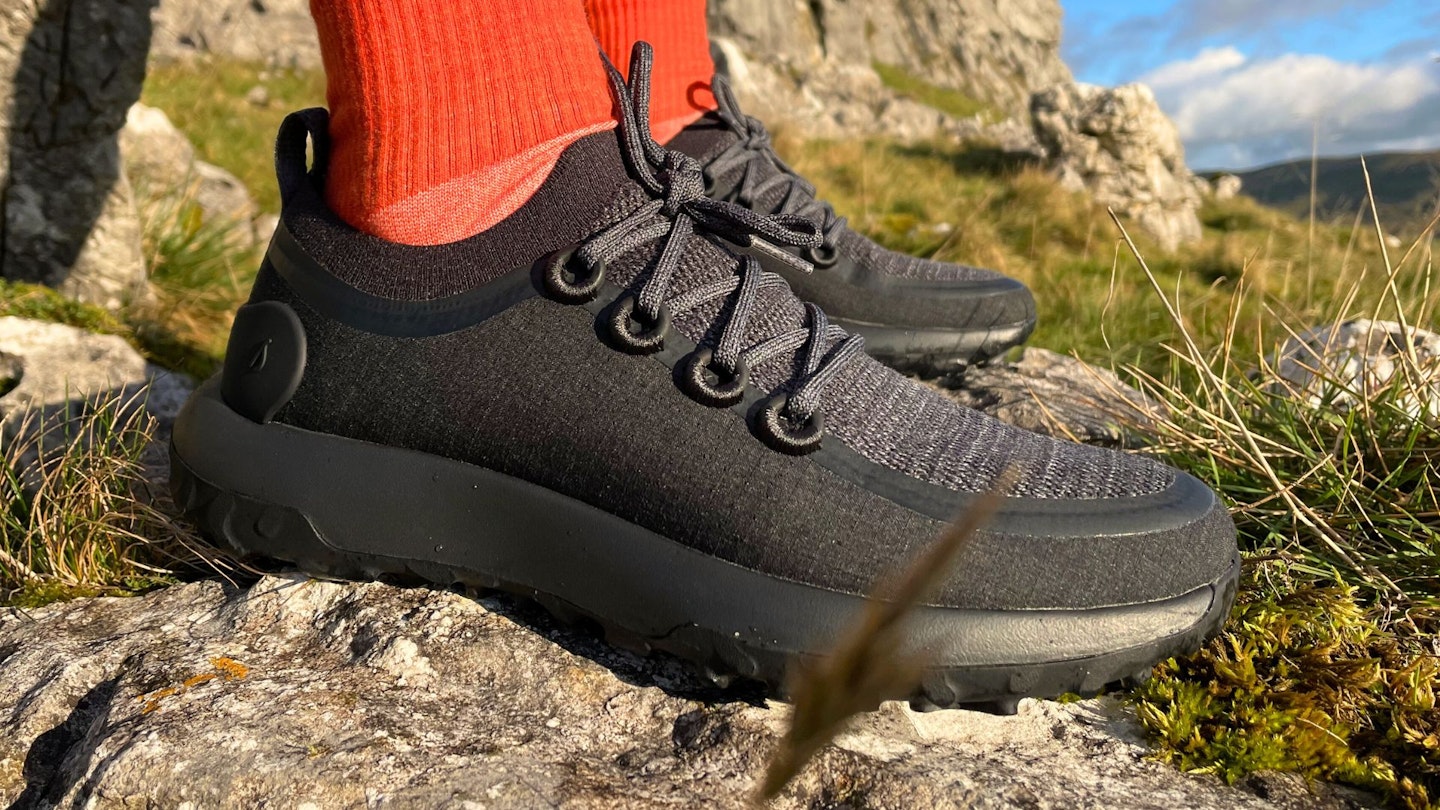 LFTO
LFTOwww.allbirds.co.uk
Pros
- Good cushioning
- Better grip than expected
- Uses far more eco friendly materials than other trail shoes
- Decent breathability
- Feels well made and durable
- Some water repellency
Cons
- Not for wet, muddy terrain
- Not the lightest trail running shoe
- No toe cap
| Men's sizes | UK 7 - 13 |
| Women's sizes | UK 2 - 8 |
| Weight (per shoe) | 339g |
| Dop | 7mm |
| Stack height | 18mm/25mm |
| Lugs | 4mm |
Design and features
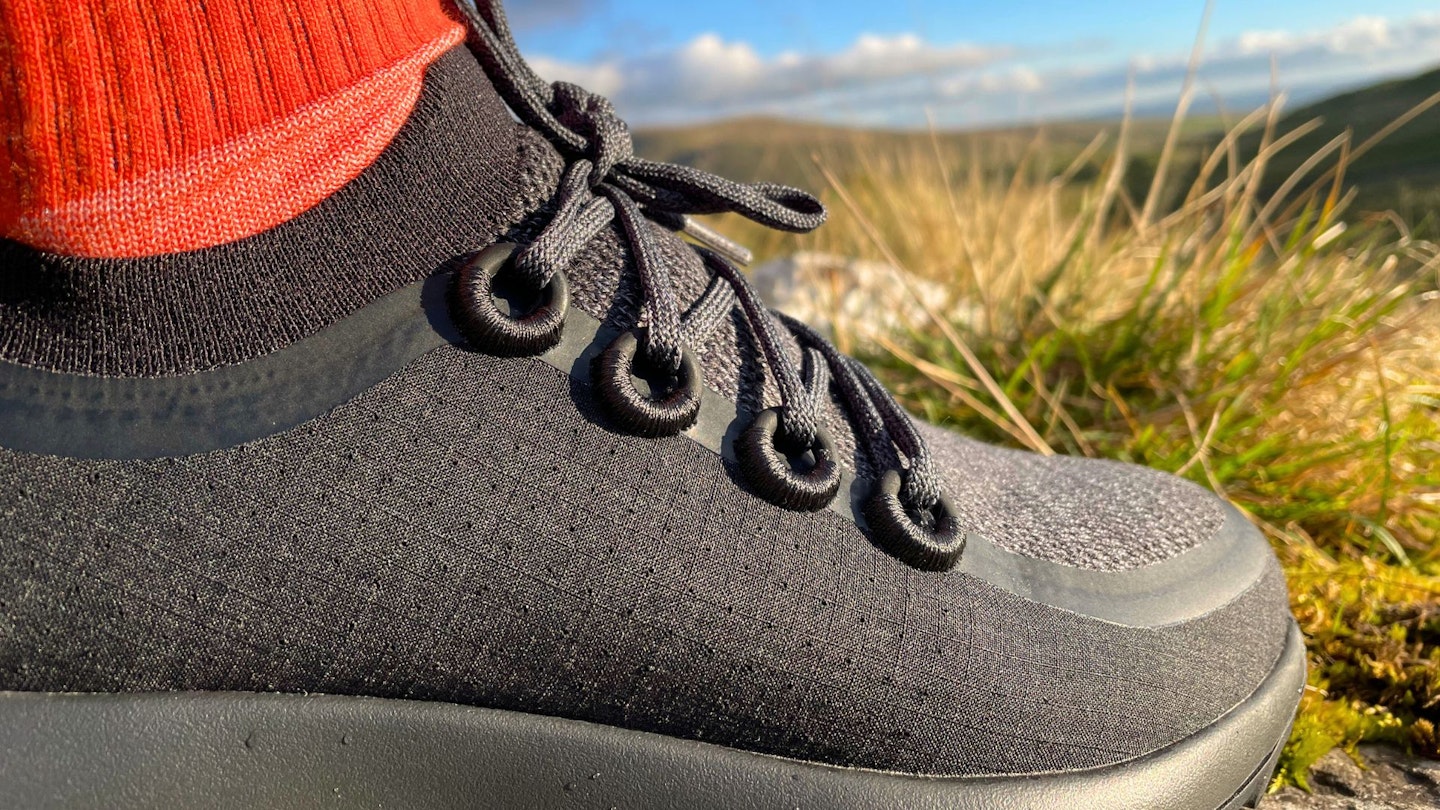
With synthetic materials being used to construct most of a trail running shoe, what does Allbirds use instead?
Going top to bottom, the upper is made from a blend of merino wool and Tencel Lyocell (a tree fibre-based material). The merino is sourced from New Zealand farms that focus on high welfare and regenerative agriculture; the Tencel Lyocell mainly comes from South Africa, cultivated using rainfall rather than irrigation.
The laces aren’t plant-based, and use recycled polyester instead. Meanwhile the shoe’s large eyelets, TPU tape and heel counter are made from bio-based nylon that are produced by microorganisms feeding on plant sugars. The insole is made from castor bean oil-based foam.
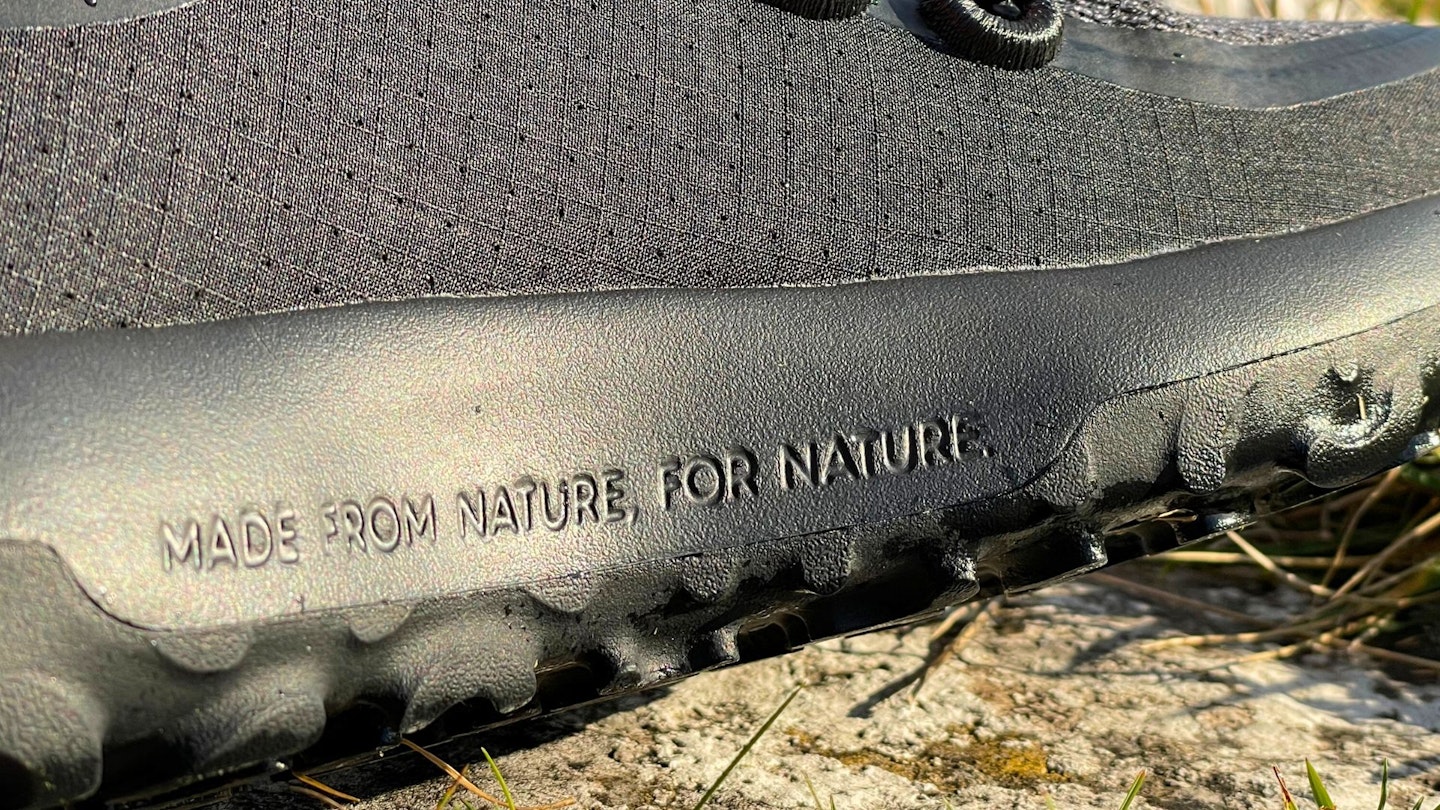
The Allbirds Trail Runner SWT’s midsole is made from sugarcane-based EVA. It’s a material Allbirds developed itself, calling it SweetFoam. Like Tencel, the sugarcane is sourced from places that rely on rainwater rather than irrigation, and also have high labour standards and regenerative agricultural practices. The outsole is made from responsibly sourced rubber.
In profile, the Allbirds Trail Runner SWT doesn’t look especially technical, more like a fashionable travel sneaker. However, the superficial stuff isn’t of concern to us. What we really want to know is whether these are proper trail running shoes.
Performance
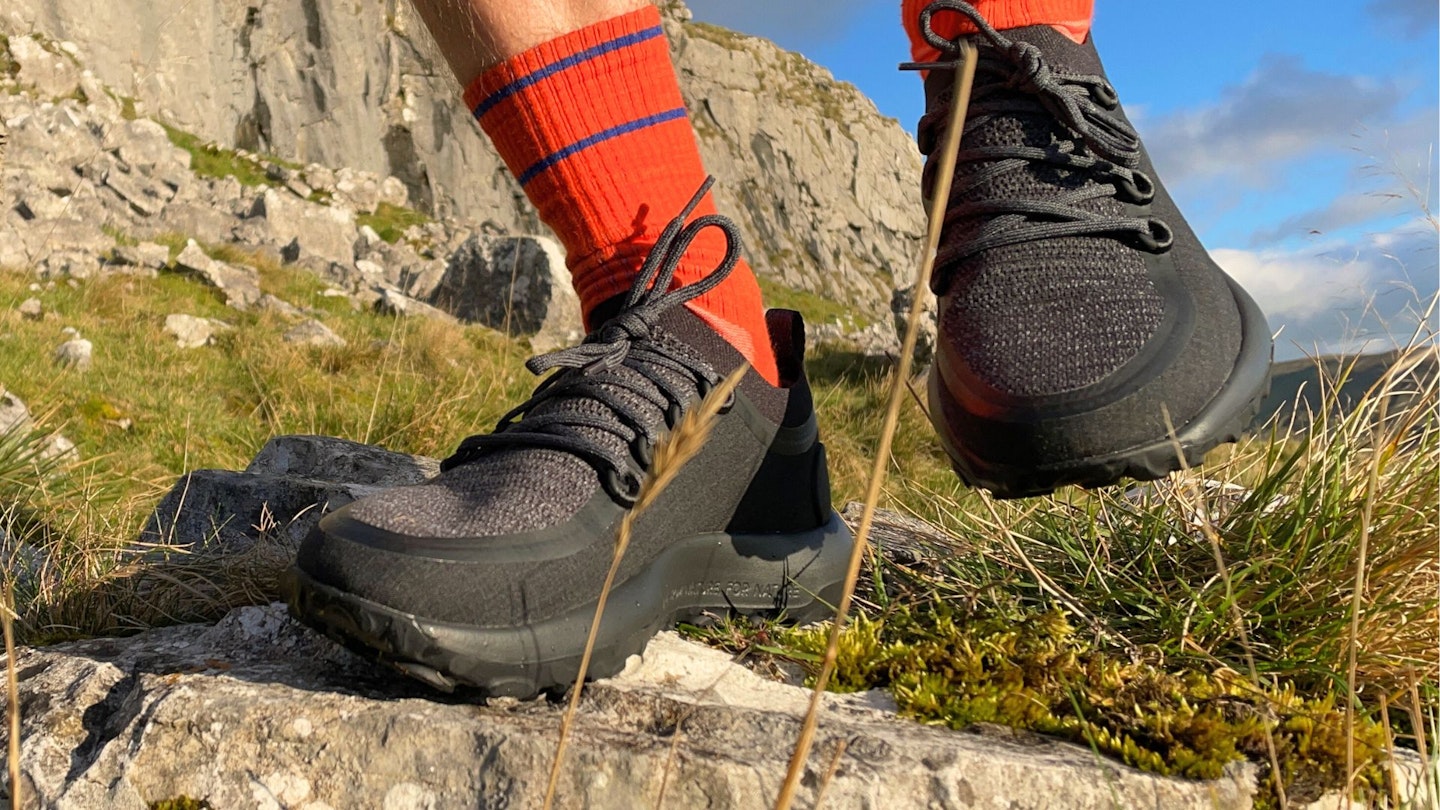
After weeks of use through late autumn and early winter, we’ve been impressed with these shoes for three reasons.
First is comfort. The midsole provided us with decent cushioning that worked well on harder ground. This meant the Allbirds shoe was comfortable on most road-to-trail type routes and even on longer runs too.
We found the upper works brilliantly too. It’s breathable and more water repellent than other non-waterproof trail running shoes. And instead of having a padded cuff like most, the Allbirds shoe has a stretchy, fitted collar, which does a surprisingly good job of keeping grit and debris out.
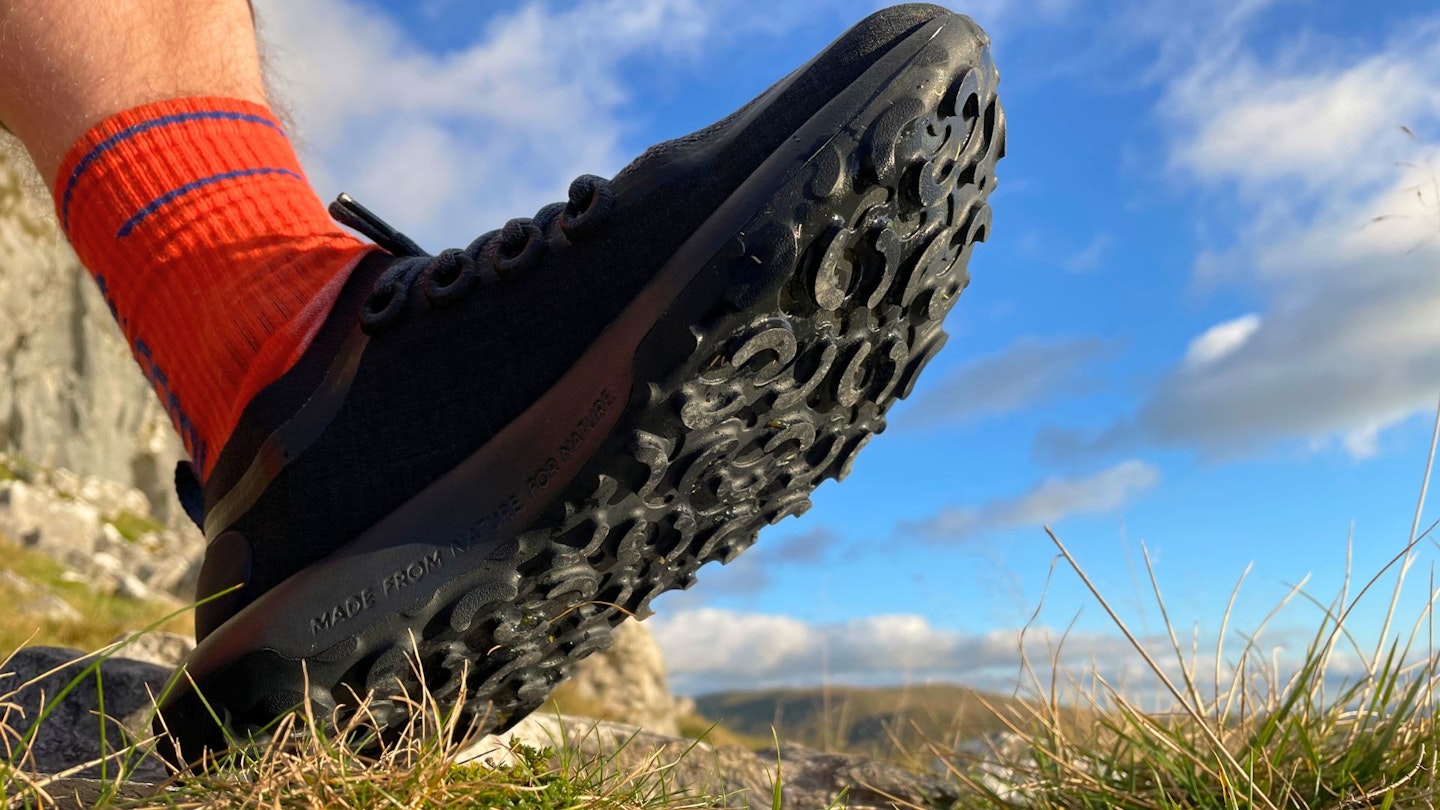
Second is grip. The 4mm lugs (Allbirds should really call them slugs because that’s what they look like) don’t look to offer much. While they did slip a bit and clog over muddy terrain, we were impressed at how well they gripped on gravel, compacted dirt, and rock even when wet. This, combined with the generous cushioning makes the Allbirds Trail Runner SWT a very respectable hard-packed trail running shoe.
Third is durability. The upper is a ripstop design, which we see employed on outdoor products all the time. But because the upper is a bit thicker and more dense that those used on many trail running shoes, and because the sole wears quite well, they have relatively good durability.
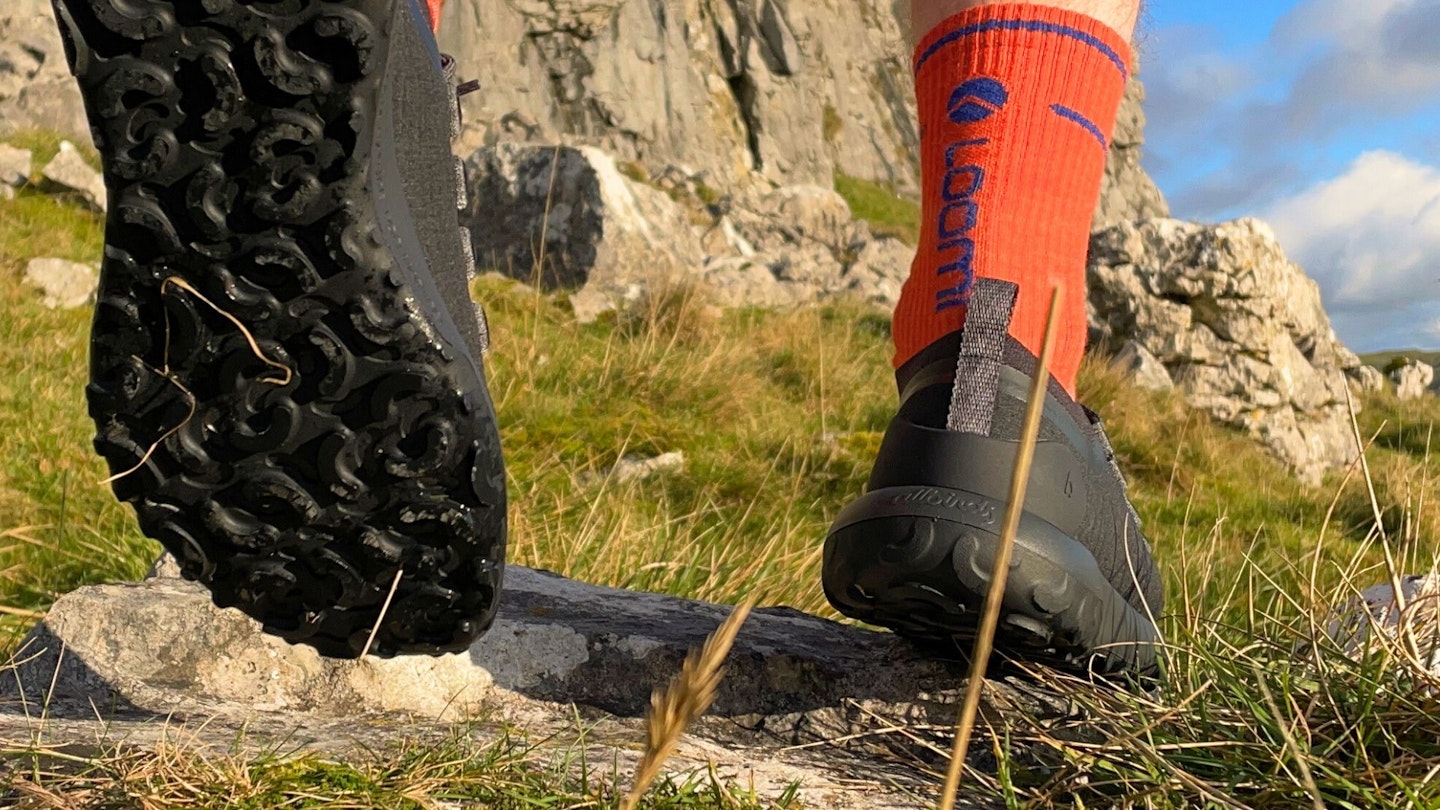
In terms of fit, the Allbirds Trail Runner SWT doesn’t have a big stack height like some highly cushioned trail running shoes and therefore feels quite stable and responsive. We liked its reasonably wide forefoot too.
Interestingly, the Allbirds Trail Runner SWT has a modest 7mm drop. For a less technical trail running shoe like this, one would expect it to be bigger, aimed more at casual runners. But if you’re a mid-foot strike runner, these shoes work surprisingly well. And if you are a heel striker, the ample heel cushioning caters to you too.
Sustainability
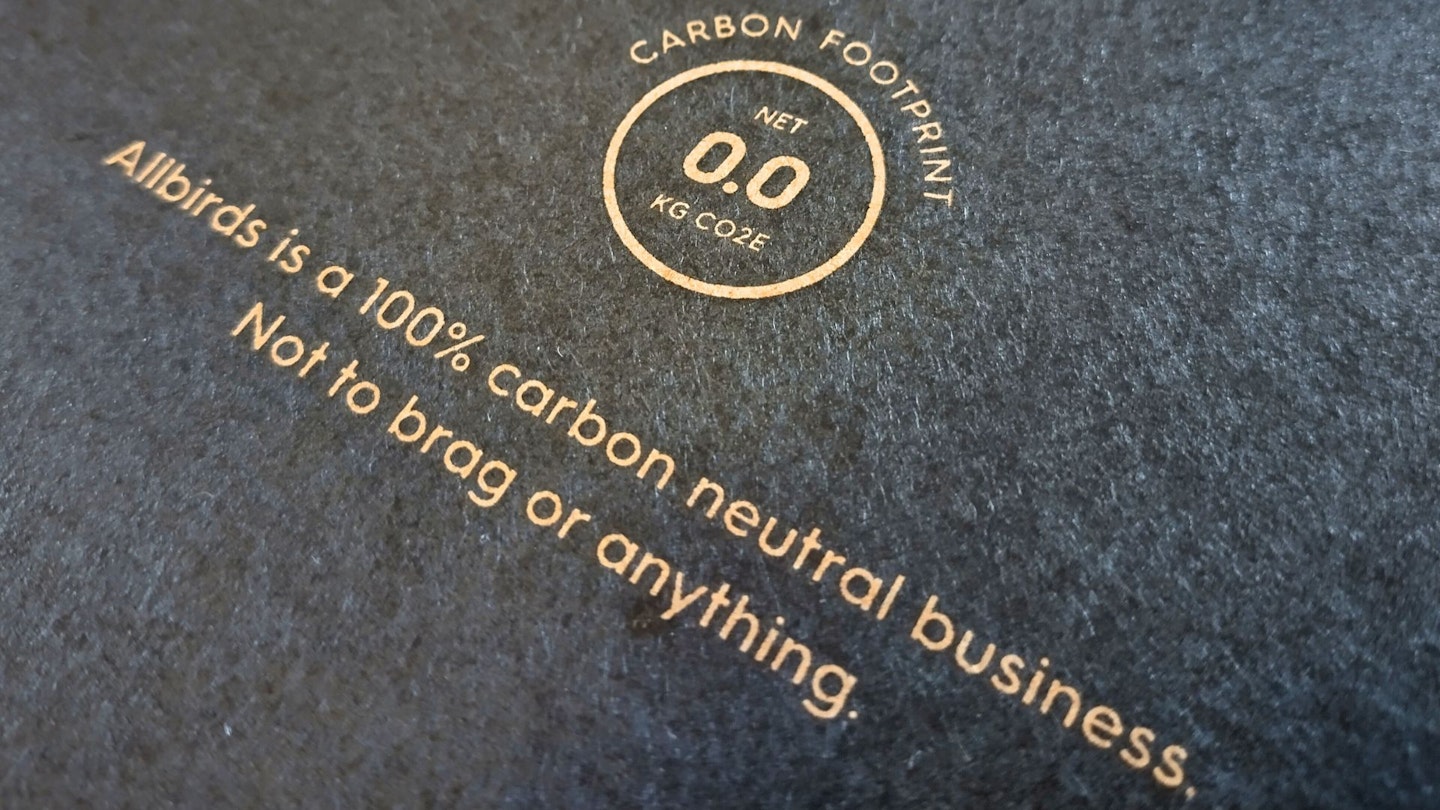
Allbirds’ commitment to cutting emissions and using more sustainable materials is ahead of the curve. In its sustainability reports it is quite specific about how, where, and when its emissions reductions are being made. Ultimately, Allbirds wants to be ‘near zero’ by 2030 and says it’s ahead of schedule for that.
In terms of renewable and sustainable materials, one can nitpick Allbirds about still using synthetic materials to a degree. However, what we think is important is that Allbirds is being proactive and entrepreneurial in finding sustainable solutions. And it’s making great progress.
Where we do see a gap is end of life. You can of course donate used footwear to organisations like Soles4Souls but Allbirds itself doesn’t take back or recycle its own footwear, which would of course be a big boost to a sustainable, circular model.
However, it’s good to see Allbirds has B Corp certification, which independently verifies that Allbirds meets high social, environmental, and transparency standards.
Price and competition
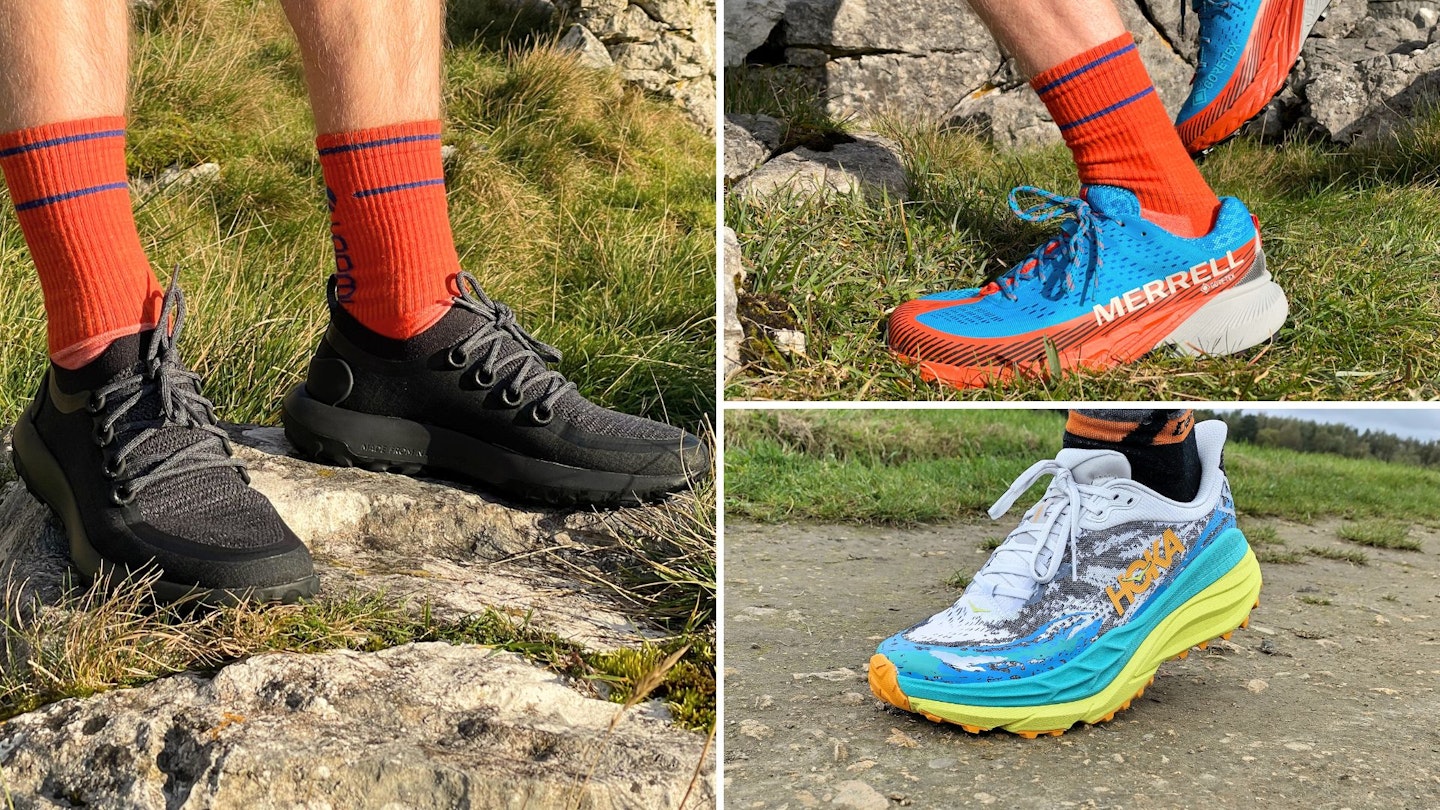
At £135 at the time of writing, the Allbirds Trail Runner SWT squares off with many trail running shoe heavyweights like the Merrell Agility Peak 5 and Salomon Sense Ride 5.
Shoes like the Merrell Agility Peak 5 are more high-performance models that are lighter and more adept at tackling both longer and more challenging terrain. But we think the Allbirds shoe can compete with road-to-trail shoes from more established and well-known brands such as the Salomon Sense Ride 5.
Another brand very popular with runners is Hoka. It also offers a wide product range of comfortable, cushioned road-to-trail models. Frankly, if you want a more eco-friendly alternative (and we all do, right?), we suggest you consider the Allbirds Trail Runner SWT.
Verdict

Allbirds has attempted to leap into the world of trail running and we think it has landed successfully. As an everyday road-to-trail, training, and hard-packed trail running shoe, its Trail Runner SWT is as capable and comfortable as much of the established competition.
Even though the Allbirds Trail Runner SWT reaches its limits when the going gets technical, we can’t see why the materials couldn’t be morphed into a more technical, high-performance trail running shoe. Maybe an Allbirds collaboration with another trail running shoe brand has potential…
How we tested the Allbirds Trail Runner SWT
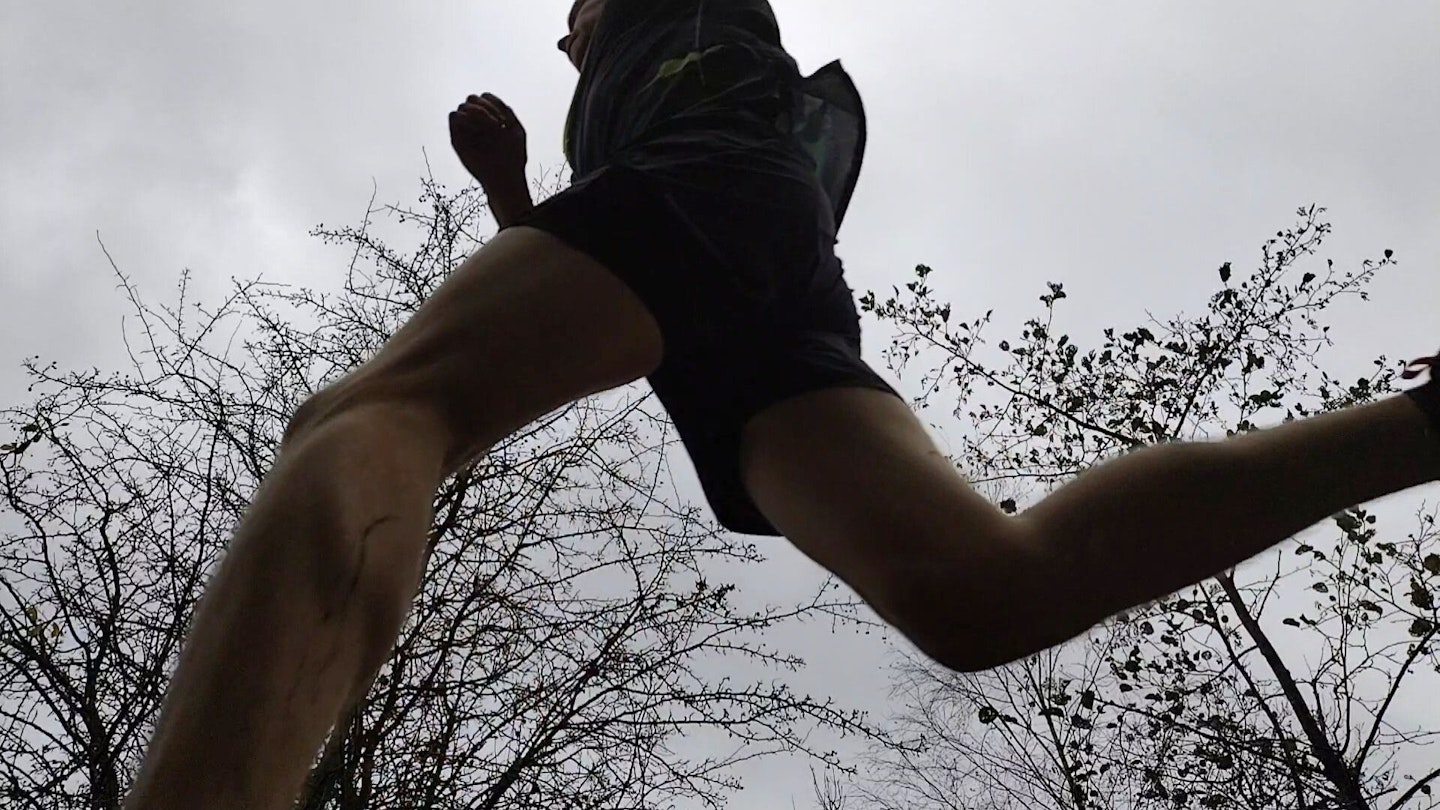
Our tester of the Allbirds Trail Runner SWT shoe was Chris Williams, one of our experienced gear testers who covers trail running and hiking.
Chris used the Allbirds Trail Runner SWT shoes for several weeks through late autumn and early winter on a range of trails including local trails, muddy tracks, and more technical routes in the Yorkshire Dales.
Read more on how we test here.
